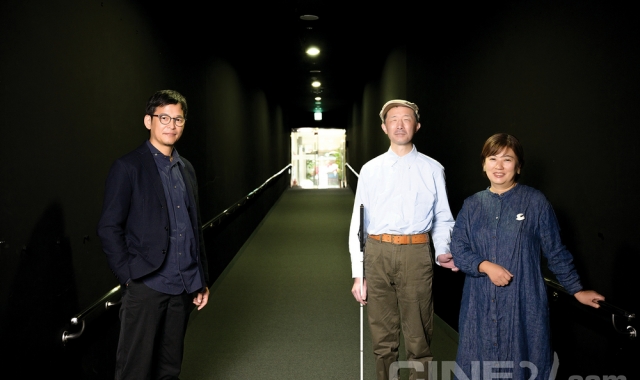
새로운 한해가 시작되고, 영화제 캘린더는 다시 돌아가기 시작한다. 세일즈 대행사와 제작사 직원들은 영화라는 상품을 동반하고 배급 계약을 확보하기 위해 짐을 싼다. 기자들은 영화를 찬양하거나 비난하기 위해 노트북을 싼다. 그리고 영화제 선정자들은 상질의 감로를 따가기 위해 서로의 영화제에 벌 떼처럼 몰려든다.
필자가 이글을 쓰는 동안 이 돌림노래는 이미 시작해서 미국 영화업계는 유타주의 눈 쌓인 산위에서 선댄스 영화제라는 일년에 한번 하는 자아 중심적인 열중과 도취의 한판을 벌이기 위해 모였다. 미국의 소위 말하는 “독립영화”에 거의 완전하게 집중된 이 영화제는 올해 작은 국제부문을 경쟁부문으로 변환시켜 더 선명한 입장을 부여해주려 했다.
연간 영화제 캘린더는 워낙 수 년 동안 워낙 고정돼버려서 최소한의 변동조차도 업계에는 지진 충격과 같이 느껴진다. 선댄스가 국제 경쟁부문을 시작할 것이라 발표했을 때 로테르담과 (특히) 베를린 영화제 관계자들은 몸서리쳤다.
그래도 막상 선댄스의 결정이 아무런 영향이 없거나 적었던 것이 세일즈 대행사와 제작사들이 여전히 확립된 진정한 의미의 국제 영화제들을 선호했기 때문이다. (선댄스 영화제의 두 가지 한국 출품작 이윤기 감독의 <여자, 정혜>와 박철수 감독의 <녹색의자>는 이어서 베를린 영화제 에서도 상영을 하기도 한다.)
그렇다면 빠른 변화의 세계에서, 그리고 국가영화의 중요성이 성장과 쇠퇴가 엇갈리는 업계에서, 영화제 캘린더는 왜 이토록 고정된 채 남아있는가? 그리고 수년이 지난 지금, 아시아에서 아직도 칸느나 베를린, 베니스, 그리고 (적어도 북미에서) 토론토 수준의 힘과 영향력을 가진 영화제를 생산하지 못한 이유는 무엇일까?
1980년대 초반 중국어 영화가 세계적 관심을 끌기 시작했을 때 , 홍콩 영화제는 잠시 그 이득을 보면서 전문분야 영화 바이어와 프레스를 끌어오는 자석이 됐다. 그렇지만 1980년대 후반에 주요 중국 영화인들은 이미 칸느, 베를린, 베니스 등에 영화를 직접 보내고 있었고, 홍콩 영화제는 영향력을 점차적으로 잃어 작은 지역 행사가 되어버렸다.
1990년대 후반부터 부산 영화제는 아시아 전문가들의 주된 집합지로써의 망토를 홍콩에게서 이어받았다. 그렇지만 향후 부산 영화제의 끄는 힘을 국제적으로 저해할 수 있는 두 가지 단층선이 있다. 그것은 아시아영화 선정 방책이 점차적으로 한정됐다는 것과 비한국인들이 이 영화제에 매력을 느끼는 큰 이유가 한국영화 산업의 힘에 있다는 것이다. 이중 하나라도 관심이 기울어지게 되면, 영화제의 국제적 위상은 (홍콩 영화제와 마찬가지로) 그와 함께 기울어질 것이다.
그 외에 어떤 아시아영화제도 국제 캘린더에 확고한 자리를 잡지 못하고 있다. 마닐라 영화제는 지금 자국 업계 모임일 뿐이며, 도쿄 영화제는 여전히 일본의 메이저 스튜디오들에 의해 너무 지배되고 있으며, 새로 나타난 방콕 영화제는 소리는 시끄러워도 인상은 깊지 못하다.
그러나 홍콩 영화제가 가장 강력할 때도 주요 서구 영화제의 우세에 도전을 제대로 한 적은 없다. 60년이 지난 지금, 권력의 방편은 대부분 영화제 컨셉을 만들어낸 이들 - 즉, 유럽인들의 손에 남아 있다. 서구 세일즈 대행사와 할리우드의 기업 권력의 지원을 받으면서 말이다. 전자는 대부분의 영화를 제공하고 후자는 대부분의 화려한 유혹을 제공하는데, 둘 다 마케팅 동기에 의한 것이다.
이런 것이 지속되는 만큼 - 그리고 지난 20년 간 서구가 아시아영화에 관심을 가진 것에도 불구하고, 이 상황이 바뀔 것이라는 당장의 기미는 안 보임 - 전문화된 국제 배급은 서구 취향에 의해 지배될 것이다. 미래를 위해서라면 아시아 영화제들은 스스로에게, 그리고 각각 자국 시장에 눈을 돌려야 할 것이다.
Film festivals: white guys still rule
Another year begins and the film festival calendar starts up again. Sales agents and producers pack their bags to accompany their product and secure distribution deals; journalists pack their laptops to praise or damn the films; and festival selectors swarm like bees on each others' events to make off with the finest nectar.
As I write this, the whole roundelay has already begun, with the U.S. industry gathered on a snowy mountain in Utah for its annual bout of self-absorbed navel-gazing called the Sundance Film Festival. Almost entirely concentrated on U.S. "independent" films, the festival has this year converted its small international section into a competition to try to give the section a higher profile.
The annual festival calendar has become so fixed for so many years that the smallest changes come like seismic shocks to the industry. When Sundance announced it was starting an international competition, shivers ran through the Rotterdam and (especially) Berlin festivals that they might have to fight harder for premieres.
In the event, Sundance's decision had little or no impact: its international competition has only a handful of premieres, as sales agents and producers still favour established, truly international platforms for their wares. (Sundance's two Korean entries, Lee Yoon-ki's "This Charming Girl" and Park Chul-soo's "Green Chair" are both subsequently showing at Berlin as well.)
So why, in a world of rapid change and in an industry which still sees countries waxing and waning in their importance, does the film festival calendar still remain so fixed? And why, after all these years, has Asia not produced a film festival with the power and influence of Cannes, Berlin, Venice and (at least in North America) Toronto?
When Chinese-language cinema started to attract worldwide attention in the early 1980s, the Hong Kong festival briefly profited and became a magnet for specialist film buyers and press. But by the late 1980s, the major Chinese filmmakers were already sending their films direct to Cannes, Berlin or Venice, and Hong Kong gradually slid back in influence to become a small regional event.
Since the late 1990s, Pusan has taken over Hong Kong's mantle as the main gathering point for Asian cinema specialists. However, Pusan has two fault-lines that could affect its future international drawing-power: its selection policy for Asian films has become increasingly limited, and much of the festival's attraction for non-Koreans lies in the strength of the local industry. If either were to wane in interest, the festival's international profile would (like Hong Kong's) wane with them.
No other Asian festivals have established a firm place in the international calendar. Manila is now just a local industry get-together; Tokyo is still too controlled by the major Japanese studios; newcomer Bangkok is making a lot of noise but little impression.
But even at its strongest, Hong Kong never seriously challenged the dominance of the major western festivals. After 60 years, the levers of power largely remain in the hands of those who invented the film-festival concept - Europeans, supported by western sales agents and the corporate power of Hollywood. The former supply most of the films and the latter supplies most of the glamour, both for marketing reasons.
As long as that continues - and there are no immediate signs of it changing, despite the West's interest in Asian cinema during the past 20 years - specialized international distribution will remain dominated by western tastes. Asian festivals should look to themselves, and their own markets, for the future.






